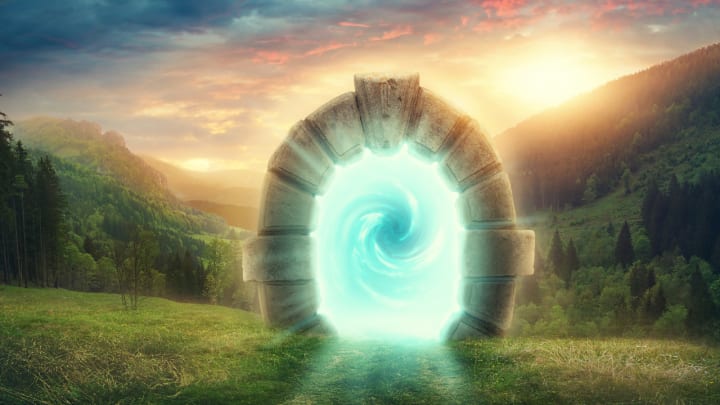
Table of Contents
- The Concept of Rebirth in Eastern Religions and Philosophies
- Rebirth in Western Traditions and Mythologies
- Rebirth as a Symbolic Motif in Literature and Art
- Rebirth in Modern Perspectives and Personal Transformation
- In Conclusion
Throughout the vast tapestry of human history and across cultures around the globe, the concept of rebirth has captured the human imagination. It is a powerful idea that speaks to our deepest hopes, dreams, and aspirations. In this article, we embark on a fascinating journey to delve into the intricate nuances of rebirth and explore its significance in different civilizations.
The Concept of Rebirth in Eastern Religions and Philosophies
In Eastern religions and philosophies, such as Hinduism and Buddhism, the notion of rebirth plays a central role in shaping their belief systems and traditions.
Hinduism: Reincarnation, commonly embraced by Hindus, stands at the core of their understanding of rebirth. Hindus believe in the cycle of birth, death, and rebirth governed by the law of karma.
The actions and intentions of an individual in this life determine their circumstances in future lives. Liberation from this cycle, known as moksha, serves as the ultimate goal.
Buddhism: Buddhists, too, recognize the concept of rebirth, emphasizing the perpetual cycle of existence known as samsara. According to Buddhist teachings, breaking free from this cycle is achieved through reaching enlightenment and attaining nirvana, which represents the cessation of suffering and liberation from rebirth.

Rebirth in Western Traditions and Mythologies
As we journey to the western hemisphere, we encounter myths, legends, and ancient traditions that demonstrate a fascination with rebirth.
Ancient Egypt: The ancient Egyptians, renowned for their elaborate burial rituals, strongly believed in the afterlife and rebirth. The process of mummification and the construction of elaborate tombs were intricately linked to their faith in a glorious resurrection.
Osiris, the god of the afterlife and resurrection, symbolized the cycle of death and rebirth, providing Egyptians with hope for new beginnings beyond the mortal realm.
Greek Mythology: Greek mythology also delves into the theme of rebirth, illustrating the cyclical nature of life. One prominent example is the myth of the phoenix, a mystical bird that lived for centuries before dramatically perishing in flames, only to rise anew from its own ashes.
The phoenix symbolizes renewal, regeneration, and the indomitable spirit of life's perpetual cycle.
"The greatest triumphs in life often follow our darkest moments. Embrace the challenges and rise from the ashes, for it is through rebirth that we discover our true strength".
Rebirth as a Symbolic Motif in Literature and Art
Beyond mythology, the concept of rebirth has resurfaced as a powerful theme in various literary works and artistic creations.
Literature: In F. Scott Fitzgerald's literary masterpiece, "The Great Gatsby," the character of Jay Gatsby represents the pursuit of reinvention and rebirth. Gatsby, driven by his love for Daisy, seeks to transcend his humble origins and become a self-made man.
The novel portrays the allure and the pitfalls of this quest for rebirth. Similarly, Charles Dickens' "A Tale of Two Cities" explores the transformative power of sacrifice, as characters strive for personal and societal rebirth amidst the backdrop of the French Revolution.
Visual Arts: Renaissance art embraced the concept of rebirth through the artistic depiction of resurrection.
Famous works such as Michelangelo's "The Last Judgment" or Botticelli's "The Birth of Venus" exemplify the idea of new life emerging from adversity.
In contemporary art, rebirth is often represented through abstract and symbolic imagery, expressing the personal transformation and growth experienced by artists themselves.

Rebirth in Modern Perspectives and Personal Transformation
While rebirth holds historical and symbolic significance, it also finds resonance in modern psychological and spiritual perspectives.
Psychology and Spirituality: Renowned psychologist Carl Jung introduced the concept of "individuation" as a form of psychological rebirth. Individuation involves integrating and reconciling the various aspects of the self to achieve wholeness.
Similarly, transformative experiences, such as near-death experiences or moments of enlightenment, often serve as catalysts for personal rebirth and spiritual growth.
Personal Growth and Resilience: Rebirth metaphorically symbolizes personal growth and resilience. Many individuals have shared inspiring stories of overcoming challenges and reinventing themselves.
These narratives highlight the transformative power of embracing change, learning from past experiences, and approaching life with a sense of renewal and rebirth.
In Conclusion
In conclusion, the concept of rebirth has captivated the human imagination throughout history, manifesting in diverse forms and cultural contexts. From ancient myths to philosophical doctrines, literature, and contemporary perspectives, rebirth serves as a catalyst for introspection, personal growth, and the renewed appreciation of life's continuous unfolding.
As we explore the mysteries of rebirth, let us embrace the timeless wisdom embedded within this concept and unlock its potential to inspire us on our own transformative journeys.
Thanks for reading
LIKE SHARE AND SUBSCRIBE






Comments
There are no comments for this story
Be the first to respond and start the conversation.